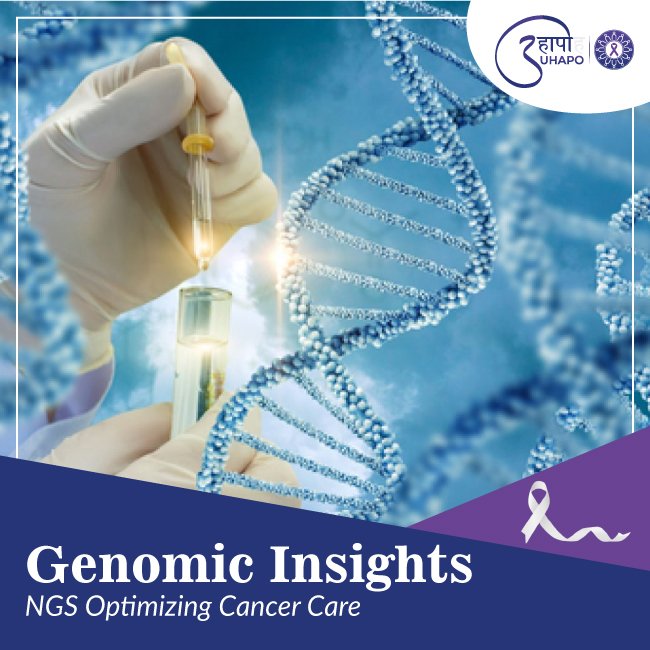
NGS Testing for Cancer Treatment
Next-Generation Sequencing (NGS) has emerged as a game-changer in the field of oncology, offering a comprehensive and personalized approach to cancer treatment. By decoding the genetic makeup of tumors, NGS testing enables clinicians to tailor treatment strategies to individual patients, maximizing efficacy while minimizing adverse effects.
Understanding NGS Testing
Next-Generation Sequencing (NGS) is a high-throughput technology that allows for the rapid and simultaneous sequencing of multiple genes or entire genomes. Unlike traditional sequencing methods, NGS can analyze large volumes of genetic data in a relatively short time, providing detailed insights into the genetic alterations driving cancer progression.
Applications in Cancer Treatment
NGS testing has numerous applications across various stages of cancer treatment, including diagnosis, prognosis, treatment selection, and monitoring of treatment response. Some key applications include –
- Comprehensive Genomic Profiling (CGP): NGS can identify mutations, gene fusions, and other genomic alterations in cancer cells, allowing for comprehensive genomic profiling of tumors. This information helps oncologists classify tumors, predict disease behavior, and select targeted therapies tailored to the individual patient’s molecular profile.
- Targeted Therapy Selection: By identifying actionable mutations and molecular targets, NGS testing guides the selection of targeted therapies designed to inhibit specific pathways driving cancer growth. Targeted therapies offer a more precise and effective
treatment approach compared to traditional chemotherapy, leading to improved outcomes and reduced side effects.
- Immunotherapy Prediction: NGS testing can predict patient response to immunotherapy by assessing tumor mutational burden, microsatellite instability, and other biomarkers of immunotherapy efficacy. This personalized approach enhances the success rate of immunotherapy and expands treatment options for patients with advanced or treatment-resistant cancers.
- Resistance Mechanism Detection: NGS helps identify acquired resistance mechanisms to targeted therapies, enabling clinicians to adapt treatment strategies and overcome resistance by switching to alternative therapies or combination regimens.
Clinical Implementation and Challenges
Despite its transformative potential, the widespread adoption of NGS testing in clinical practice faces several challenges. These include –
- Cost: NGS testing can be expensive, particularly for comprehensive genomic profiling or whole-genome sequencing. Cost considerations may limit access to NGS testing for some patients, particularly in resource-limited settings.
- Data Analysis and Interpretation: Analyzing and interpreting NGS data requires specialized expertise in bioinformatics and molecular oncology. Clinicians need robust computational tools and algorithms to accurately interpret genetic variants and translate genomic data into actionable treatment strategies.
- Regulatory and Reimbursement Issues: Regulatory frameworks governing NGS testing vary across jurisdictions, leading to inconsistencies in testing standards and reimbursement policies. Streamlining regulatory pathways and establishing reimbursement mechanisms are essential for facilitating the integration of NGS into routine clinical practice.
Cost of NGS Testing for Cancer Treatment
The cost of Next-Generation Sequencing (NGS) testing for cancer treatment in India typically ranges from ₹20,000 to ₹1,00,000 or more. It vary based on several factors including –
- Type of NGS Test: Different types of NGS tests may have varying costs. Whole genome sequencing (WGS) and whole exome sequencing (WES) are generally more expensive compared to targeted gene panel sequencing, which focuses on specific genes associated with certain cancer types.
- Extent of Analysis: The number of genes being sequenced and the depth of sequencing (how many times each base is read) can influence the cost. More comprehensive tests that analyze a larger number of genes or require deeper sequencing may incur higher costs.
- Laboratory or Testing Facility: The pricing structures of laboratories and testing facilities can vary. Factors such as the quality of equipment, expertise of personnel, and additional services offered may impact the overall cost.
- Insurance Coverage: Patients with health insurance coverage may have some or all of the NGS testing costs covered, depending on their insurance plan and the specific terms of coverage for genetic testing. It’s advisable to check with insurance providers regarding coverage details.
Outlook and Opportunities
Despite these challenges, the future of NGS testing in cancer treatment holds immense promise. Ongoing advancements in sequencing technologies, bioinformatics, and data analytics are enhancing the speed, accuracy, and cost-effectiveness of NGS-based testing. Additionally, collaborative research initiatives and large-scale genomic consortia are expanding our understanding of cancer biology, identifying novel therapeutic targets, and paving the way for precision oncology approaches tailored to individual patients.
Conclusion
Next-generation sequencing testing represents a paradigm shift in cancer treatment, offering unprecedented insights into tumor biology and guiding personalized therapeutic interventions. By harnessing the power of genomic data, NGS enables clinicians to devise targeted therapies that maximize efficacy while minimizing toxicity. As NGS continues to evolve and become more accessible, it holds the potential to revolutionize cancer care, improve patient outcomes, and ultimately, transform the way we treat and manage cancer.
